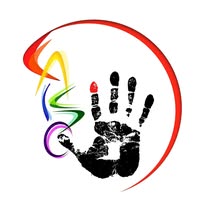A backward step: Trinidad and Tobago recriminalises LGBTQI+ lives
Trinidad and Tobago’s Court of Appeal has overturned a landmark 2018 ruling that decriminalised consensual same-sex relations. The reversal reinstates colonial-era criminal provisions, including penalties of up to 25 years in prison. This devastating blow to LGBTQI+ rights stands in stark contrast to recent progress in other Caribbean countries, including Dominica, where similar bans were struck down last year. Trinidad and Tobago’s LGBTQI+ activists now face the task of appealing against the ruling while continuing to challenge deep-seated social stigma, discrimination and violence that severely limit LGBTQI+ people’s access to fundamental rights.
Content warning: this article contains language some may find offensive.
On 25 March, LGBTQI+ people in Trinidad and Tobago suffered a devastating legal setback when the country’s Court of Appeal overturned a landmark 2018 ruling that had decriminalised same-sex relations. The ruling reinstated colonial-era criminal penalties for consensual same-sex acts, effectively recriminalising the lives and identities of thousands of Trinidadians and forcing many – particularly outside the capital – back into hiding.
A victory undone
The 2018 ruling came in response to a challenge against sections 13 and 16 of the Sexual Offences Act brought by LGBTQI+ activist Jason Jones, a gay Trinidadian who left the country because of discrimination on the basis of his sexual orientation. These provisions criminalised ‘buggery’ and ‘serious indecency’ with penalties of up to 25 years’ imprisonment for anal sex and five years for other same-sex acts. High Court Justice Devindra Rampersad ruled them unconstitutional, finding they violated fundamental rights to privacy, dignity and freedom of expression. The court’s ruling was clear that the rights of anyone couldn’t be taken away because of the beliefs of others.
But victory was short-lived. The government immediately appealed against the ruling. Seven years later, the Court of Appeal brought back the old legal framework, inherited from 19th-century British colonial rule and deeply out of step with contemporary human rights standards. In doing so, the court argued it was up to parliament and not judges to change the law, so same-sex relations had effectively never been decriminalised. It also implied this wasn’t such a big deal because the prohibition hasn’t been enforced in years. But LGBTQI+ activists emphasise that the law denies them the right to privacy, subjects their lives to judicial scrutiny and deprives them of freedom to express their love.
This setback comes in stark contrast to the regional trend. All former British colonies in the Caribbean inherited identical criminal laws against homosexuality that targeted LGBTQI+ people in general or gay men in particular. Trinidad and Tobago gained independence in 1962 but retained these discriminatory provisions in its Criminal Code, as did all its neighbours. But since 2010, the trend has been towards decriminalisation, with six Caribbean countries scrapping their criminalising provisions. While battles for legalisation are ongoing in other parts of the Caribbean, Trinidad and Tobago is alone in taking a step backwards.
Daily realities beyond the courtroom
Even during the brief period of decriminalisation between 2018 and 2025, systemic barriers to equality stayed firmly in place. Trinidad and Tobago’s Equal Opportunity Act explicitly excludes sexual orientation from protected categories, leaving LGBTQI+ people vulnerable to discrimination in employment, healthcare, housing and public services. Transgender people face even greater challenges, and under the reinstated laws will face renewed criminalisation.
Immigration policies reinforce the discriminatory landscape, with laws technically barring ‘homosexuals’ from entering the country, though enforcement has been inconsistent and largely symbolic. These provisions collectively create a hostile legal environment that undermines the dignity and security of LGBTQI+ Trinidadians.
The legal setback both reflects and reinforces social attitudes. Religious conservatives, particularly from evangelical groups, frame LGBTQI+ rights as a moral threat to traditional values, with some leaders likening same-sex marriage to ‘a cancer’ on society. This has a profound impact on LGBTQI+ people’s everyday lives. Many rely on discreet social platforms like Grindr for connection, fearing public exposure in communities where religious condemnation remains powerful.
Stigma means serious public health implications. Regional evidence suggests that criminalisation exacerbates health crises, particularly HIV transmission. Jamaica, which maintains similar laws, has one of the world’s highest HIV prevalence rates among men who have sex with men. Fear of discrimination often prevents LGBTQI+ people seeking testing or treatment, undermining public health objectives.
Safety concerns extend beyond health. The 2018 decriminalisation ruling triggered violent backlash against activists, illustrating the risks associated with visibility in this contested space. The 2025 reversal may further embolden discriminatory attitudes and behaviours, heightening the vulnerability of an excluded community.
The struggle continues
Trinidadian civil society activists have already announced plans to appeal to the Judicial Committee of the Privy Council in London, Trinidad and Tobago’s final court of appeal.
Beyond litigation, LGBTQI+ organisations, particularly CAISO: Sex and Gender Justice, Pride TT and their regional partners, emphasise the need for comprehensive reform to address multiple dimensions of inequality, including income inequality, economic sustainability, crime and violence and access to healthcare. Their efforts include adding non-discrimination protections for LGBTQI+ people to the Equal Opportunity Act.
But genuine equality requires both legal protection and social acceptance. That’s why campaigners are submitting legal challenges and advocating for legislative change while simultaneously addressing the cultural, religious and social factors that perpetuate stigma. The year of decriminalisation was also the year Trinidad celebrated its first Pride festival. These efforts will keep going hand in hand.
Trinidad and Tobago’s journey illustrates the fragility of human rights advances in societies still reconciling with colonial legacies. The ruling represents a painful regression, but the broader trajectory of Caribbean jurisprudence gives grounds for cautious optimism. For LGBTQI+ people in Trinidad and Tobago, the struggle continues. Justice, though delayed, won’t be denied.
OUR CALLS FOR ACTION
-
The Judicial Committee of the Privy Council should prioritise hearing the appeal against the Court of Appeal’s ruling and restore the rights of LGBTQI+ people in Trinidad and Tobago.
-
Trinidad and Tobago’s government should enact comprehensive legislation to tackle discrimination on the basis of sexual orientation and gender identity.
-
Regional and international LGBTQI+ rights organisations should provide support to Trinidad and Tobago’s LGBTQI+ activists as they continue their legal challenge.
For interviews or more information, please contact research@civicus.org
Cover photo by Sean Drakes/Getty Images





